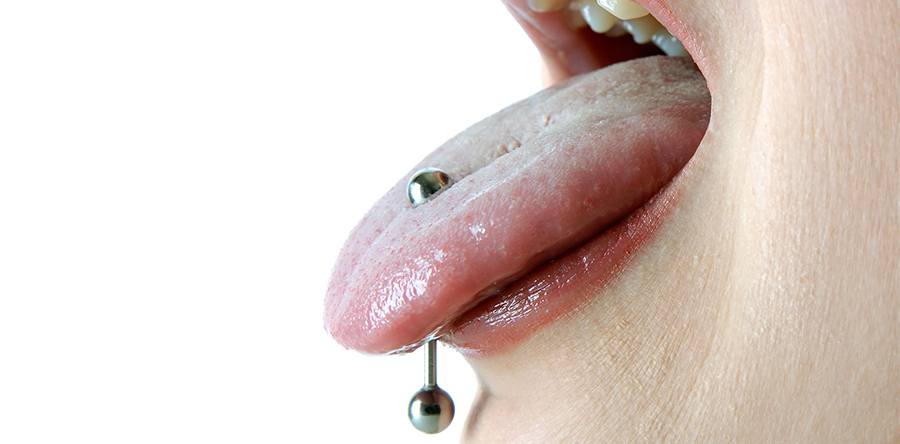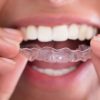Oral piercing is an ancient practice of body modification and self-expression that is also common in modern society. Oral piercings may be placed on the tongue, lips, cheeks or a combination of sites. Oral piercings are more typically seen in adolescents and young adults, and the tongue is considered the most common site for oral-piercing placement. There are two primary forms of oral piercing: the term intra-oral piercing describes a piercing in which both ends of the oral jewelry reside in the oral cavity, as seen with tongue piercings. Similarly, the term perioral piercing describes a piercing in which one end resides in the oral cavity and the other end penetrates the skin surface in the cheek, upper or lower lip, or chin.
While some individuals may consider oral piercings to be popular or trendy, numerous studies and case reports have shown that oral piercings can lead to a wide range of oral and systemic complications.
The ADA advises against the practices of cosmetic intraoral/perioral piercing and tongue splitting, and views these as invasive procedures with negative health sequelae that outweigh any potential benefit.
Risks Associated and Complications of Oral Piercing
Oral piercing complications are relatively common and can arise either during the oral-piercing procedure, immediately after its completion, or over the long term. There have been several case reports that have described severe or life-threatening complications related to oral piercing.
Dental Considerations for Patients with Oral Piercing
In the U.S., dentists commonly encounter and treat patients, particularly younger adults, with various forms of oral piercing or oral jewelry in the intra-oral/perioral region. Piercings of the tongue and other oral sites are associated with increased risk of ]gingival recession and potentially traumatic lacerations. Pierced individuals are also at increased risk of infection due to vast number of bacterial species in the oral cavity.
To reduce risks of oral infection after piercing procedures, pierced individuals should be advised to maintain a standard oral hygiene regimen that includes: twice-daily tooth-brushing using fluoride-containing toothpaste and a soft-bristle toothbrush; regular use of floss or another inter-dental cleaner; and use of alcohol-free mouthwash during and after the healing period.
About Johnson Family Dentistry – Orlando, FL
At Johnson Family Dentistry, we are a dental practice devoted to restoring and enhancing the natural beauty of your smile using conservative, state-of-the-art procedures that will result in beautiful, long, lasting smiles. We are conveniently located next to Publix Super Market in The Shoppes at Eastwood. Contact us Today at (407) 282-0002.
Our Services include the following; Bonding, Crowns & Bridgework, Dental Implants, Fillings, General and Cosmetic Dentistry, Oral Cancer Screenings, Periodontal (Gum) Disease Therapy, Porcelain Veneers, Professional Teeth Cleanings, Removable Dentures, Root Canal Treatment, Sealants, Teeth Whitening, TMJ/TMD Treatment, and Tooth Extractions.





